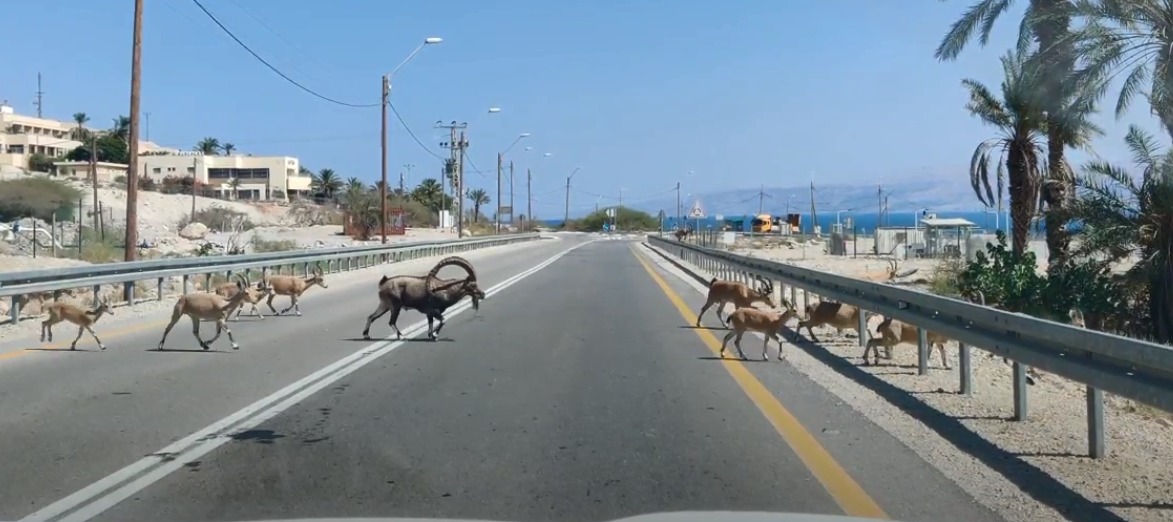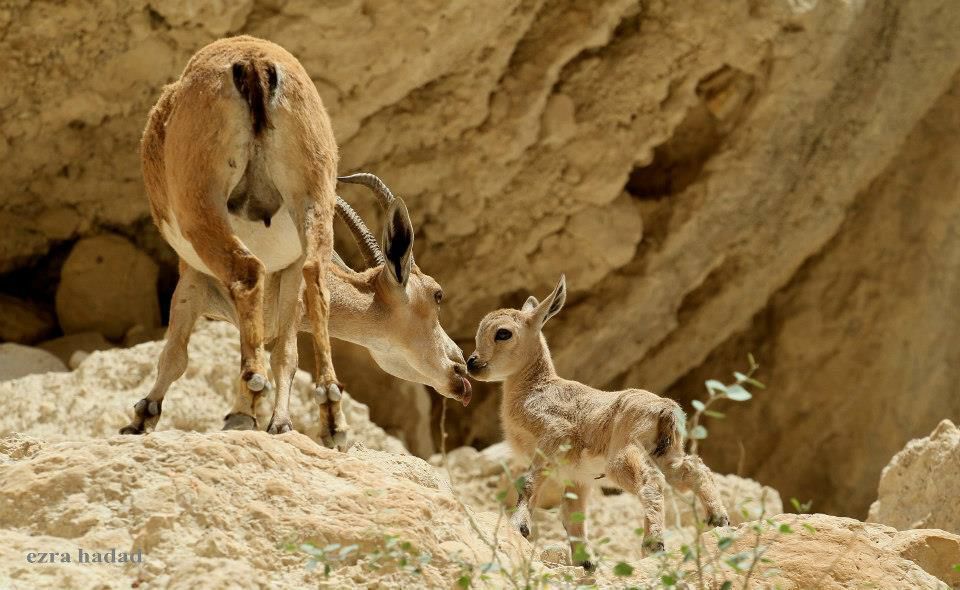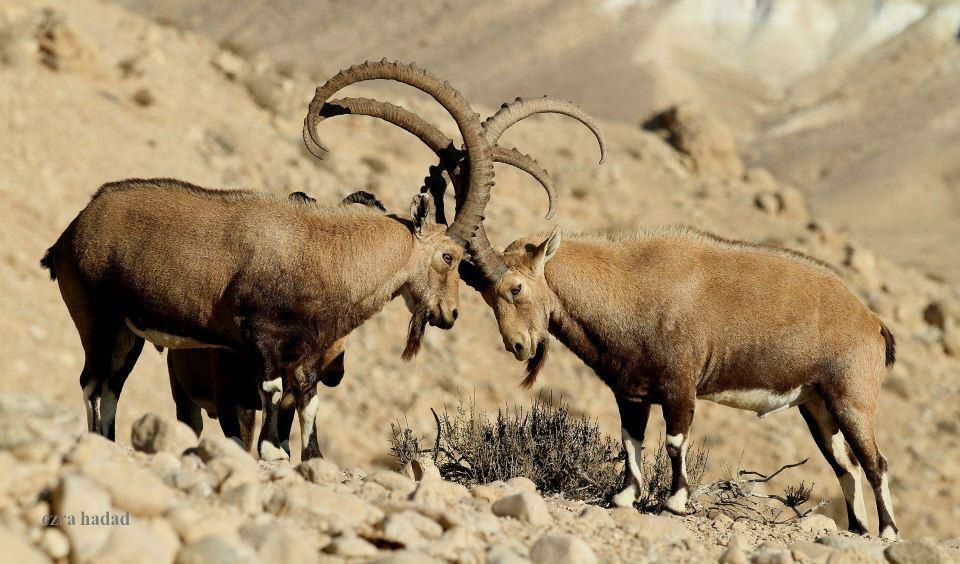Getting your Trinity Audio player ready...
A herd of some 80 Nubian Ibex was recorded this week crossing Highway 90 in the Dead Sea Valley within minutes.
"Because it's mating season, Ibexes are concentrated in large groups, with many males attempting to court the females," said Avner Rinot, a member of the Society for the Protection of Nature in Israel who captured the video.
Nubian Ibex crossing Highway 90
(Video: Photo: Avner Rinot, Society for the Protection of Nature in Israel)
"What is certain is that the animals have gained some quiet from human activity and their freedom of movement is well felt at some sites, which are usually full of hikers and vacationers."
3 View gallery


Nubian Ibexes crossing Highway 90
(Photo: Avner Rinot, Society for the Protection of Nature in Israel)
Amir Balaban, director of urban nature at the Society for the Protection of Nature in Israel, explained that autumn is mating season for the Ibexes in the Judean Desert, the Negev and for the small population that resides in the Golan Heights.
Their daily routine includes descending early in the morning from the local cliffs they live on towards the grazing areas located near the streams.
They drink there while resting in the shade when the weather gets too hot, and ascend back to their hiding places in the cliffs in the evening.
"This season, the females are still roaming the herds with the cuffs they bore last year and the males, with the young single ones especially, chasing them everywhere," Balaban said.
3 View gallery


A Nubian Ibex female with her cuff in the northern Judean Desert
(Photo: Society for the Protection of Nature in Israel)
"The bigger males are busy fighting among themselves and soon they will mate, which ensures that next April will see many more cuffs."
The Society for the Protection of Nature in Israel noted that the ibex is one of the biggest nature conservation success stories in Israel, as the species was in danger of extinction in the past, but thanks to a series of measures, including the establishment of nature reserves, it survived and its population thrives.
3 View gallery


Two Ibex males fighting in the northern Judean Desert
(Photo: Society for the Protection of Nature in Israel)
"The herd that crossed the road demonstrates how much of a challenge it is to move between habitats, and thanks to the lockdown and quiet traffic on the roads, there is less chance of Ibex getting run over," Balaban said.
"However, during normal traffic, we see many Ibexes getting run over when attempting to eat the weeds on the side of the road. Once the lockdown is over and normal traffic returns, we must pay special attention to the wild animals that have become accustomed to the relative freedom of movement. After the last closure, we saw many Ibexes get hit by cars."




